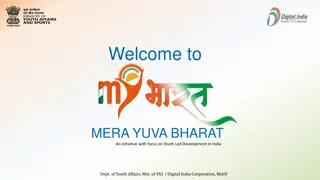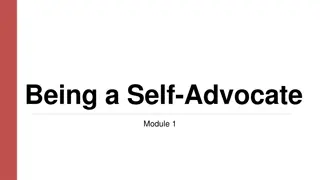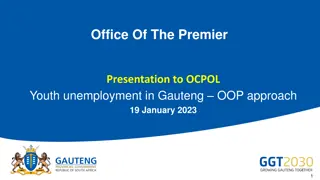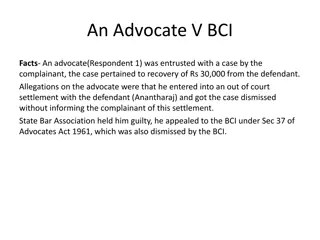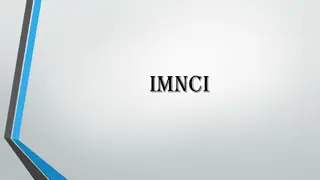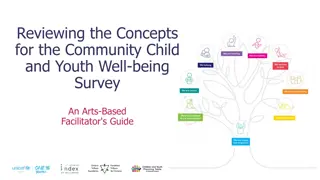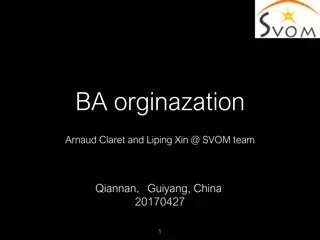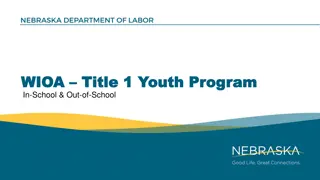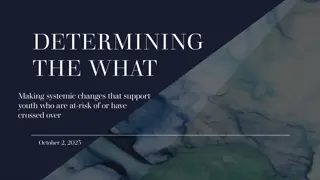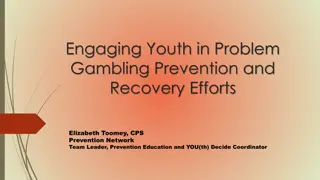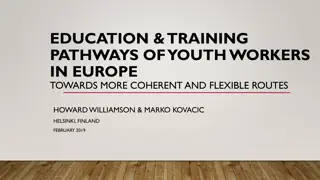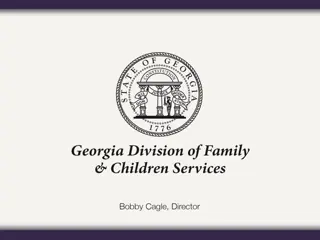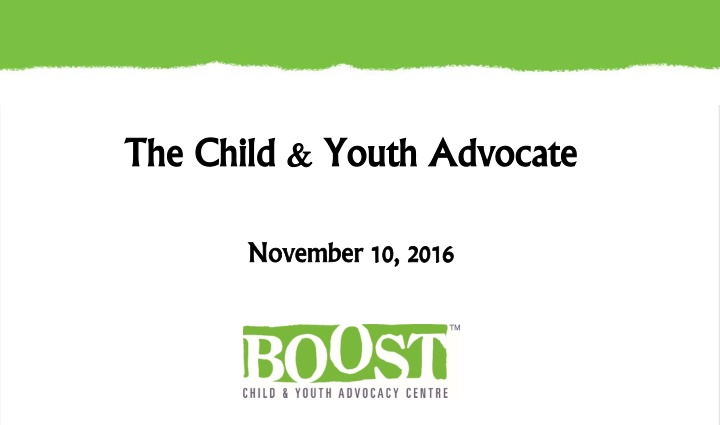
Child & Youth Advocacy Programs - Support for Trauma and Violence Survivors
Learn about Child & Youth Advocacy Programs providing immediate and ongoing support for children, youth, and families who have experienced trauma and violence. These programs offer needs assessment, psycho-education, crisis support, regular contact, referrals to services, and counseling. Explore the impact of these advocacy services and how they assist in the recovery process.
Download Presentation

Please find below an Image/Link to download the presentation.
The content on the website is provided AS IS for your information and personal use only. It may not be sold, licensed, or shared on other websites without obtaining consent from the author. If you encounter any issues during the download, it is possible that the publisher has removed the file from their server.
You are allowed to download the files provided on this website for personal or commercial use, subject to the condition that they are used lawfully. All files are the property of their respective owners.
The content on the website is provided AS IS for your information and personal use only. It may not be sold, licensed, or shared on other websites without obtaining consent from the author.
E N D
Presentation Transcript
The Child & Youth Advocate The Child & Youth Advocate November 10, 2016 November 10, 2016
CYAC Pilot Project CYAC Pilot Project (2011-2013) Advocate role was first introduced MDT approach to investigations but not co-located site Attend child friendly location for the interview Police, CAS & Advocate would meet a child-friendly location SCAN & CYAC counsellor would consult via phone CYAC counsellor role created to provide immediate/short- term support MDT debrief following each case
CYAC Pilot Project CYAC Pilot Project (2011-2013) There were two Advocates in the pilot project From April 2011 March 2013, the Child & Youth Advocacy Program (CYAP) received: 193 notifications of child abuse investigations 119 families consented to services from the CYAP An example of positive caregiver feedback received in the survey during the pilot: Having the advocate explain what was going to happen and having them to go to for anything even when police and my worker was finished. I knew that I could still go to the advocate for support or if I had questions.
Boost Child & Youth Advocacy Centre Boost Child & Youth Advocacy Centre The CYAC officially opened: October 2013 Co-located model in a child friendly environment All MDT members are housed here Police, CAS, Advocate, Counsellors, Medical In this model: 1 Advocate is assigned to each family Not all CYAC s have this model The CYAP is voluntary receive informed consent to provide services Criminal charges and/or an open child protection file are not a requirement for advocacy services
Meet the Advocate Meet the Advocate Advocate Video
The Advocate Provides The Advocate Provides Immediate/ongoing support for children, youth and families who have experienced trauma and/or exposure to violence from the investigation until services are no longer required Needs assessment upon meeting the family Psycho-education & crisis support Regular/consistent contact with the family Referrals to supports & services (if required) Counselling Child/Victim Witness Support Program Victim/Witness Assistance Program
The Advocate The Advocate Role Role The Boost CYAC Model has designated: Advocates, CYAC counsellors, CVWSP workers Other Agencies: the role and who fills those roles might be different A volunteer or police-based victim service worker may fill that role Family may not be assigned to a specific Advocate Smaller community/agencies Limited resources Advocate may provide counselling Advocate may help child/youth prepare for court
The The Typical Case Typical Case Notification of a case by CYAP supervisor/MDT member Meet the family & orientate them to the centre Do not discuss specifics surrounding the investigation Introduce the family to the Investigative Team Receive informed consent Discuss services, the Advocate role & confidentiality
The Typical Case The Typical Case Meet Caregiver Individually (during the interview) Explanation of additional services & supports Provide Psycho-education Common responses & reactions to trauma Supportive Messaging Meet Youth Individually (following their interview) Discuss confidentiality & its limits Check-in Symptom checklist Suicide & self-harm
The The Typical Case Typical Case If informed consent is received: Advocate facilitates introduction to CYAC counsellor if youth/caregiver requires immediate counselling support Following investigation, Advocate & MDT debrief and discuss next steps Advocate checks in with the family within 72 hours following the investigation, unless otherwise discussed Advocate facilitates referrals as recommended by MDT/requested by the family The Advocate may attend case reviews on the family s behalf The Advocate will remain in contact with the family until services are complete and/or the family requests their file be closed
The The Typical Case Typical Case After-hour Investigations & Investigations Outside the CYAC Advocates do not attend investigations outside of the CYAC (school, station, hospital) at any time If an Advocate is available, they may attend after-hours investigations at the CYAC When an Advocate is not present, the Investigative Team is provided with a CYAP folder (information sheet, brochure, consent forms & business card) for the family If verbal/written consent is obtained, the Advocate will contact the family within 72 hours following the interview to offer CYAP services If consent is not obtained, the Advocate will not contact the family
The The Typical Case Typical Case CYAC Referrals (Internal) The Suspected Child Abuse and Neglect (SCAN) Program, Mental Health Consultant, Assessment & Treatment Program (Boost), Child Victim/Witness Support Program (Boost) Community Referrals Medical, Community Mental Health Agencies, Legal Assistance, Victim/Witness Assistance Program, Public Assistance, Housing Assistance, Immigration
Challenges Challenges Initial buy in from MDT finding a place for the Advocate Role definition of Advocate & CYAC Follow-up cases vs. meeting at the investigation Balancing long-term cases & immediate investigations Flexibility: adapt to each case & varying needs of client(s) Mental health concerns varying responses to trauma Limited information/information changes at the investigation Case study: Information changes mid-investigation
Challenges Challenges Advocate Case Load (April 2015- April 2016) 267 new families consented to CYAP Services 512 participants in the CYAP 70% were seen at the CYAC 30% follow-up cases: Advocate was assigned following off-site interviews At any given time, an Advocate carries a 25-35 family caseload Advocates have approx. 120 cases/year Case load currently do not have a cap
Challenges Challenges Balancing multiple clients from the same family/case Maintaining boundaries & confidentiality Ex. parent consent vs. no consent from child/youth Resources/funding challenges Inability to go above & beyond set expectations Logistics: Multiple cases at the CYAC at the same time Space & Privacy for discussions
Successes Successes MDT believes in this model, resulting in solid team relationships Colocation allows for dialogue/communication with the MDT Colocation has provided an opportunity to better understand each member s roles/responsibilities Close working relationship with CAS/Police allowed for: A new perspective on investigations: the benefit of the Advocate A more considerate approach to investigations, to best meet the client s needs Case Study: Slip between the cracks
Successes Successes Feedback from families has been positive Clients feel they have been listened to One neutral person, connecting with the family Communicates they have not been forgotten Community relationships with different agencies: demonstrating an alternative approach to abuse investigations Beneficial for the community agencies & the CYAC Realize how interconnected agencies/services are
Successes Successes If needed, Advocate s involvement allows for connection with services earlier than child/youth would otherwise be connected Example: If the child/youth is anxious about the court process - connect them with CVWSP worker early Amount of contact the Advocate has with families Allows MDT more time to focus on the investigation
Successes Successes Advocacy Contact Stats (Oct 1, 2015 Oct 1, 2016) 304 new referrals were made to the Advocacy team 1481 contacts with Families 1039 contacts with MDT 982 contacts with community agencies 97 referrals made for Support Services
Successes Successes Safe Space & Time Spent with Advocate Helps client feel more comfortable to make a disclosure Without addressing specifics of the investigation, Advocate checks in: how client feels about being at the CYAC Advocate can inform the officer or child protection worker prior to the investigation of information/specific fears that would assist in development of rapport/support during the investigation Case Study: 80s Music
Learning Outcomes Learning Outcomes CYAC counsellors meeting family at every investigation Lack of resources Difficult to coordinate Too much for the family MDT debrief following investigations helpful for MDT to be on the same page Difficult: underestimated cases at CYAC & length of each investigation Stopped MDT debrief & became Advocate responsibility to follow up with MDT Currently: trying to get MDT together to debrief after each case
Learning Outcomes Learning Outcomes Boundaries Cell phones/late nights Supervision in place for support Not knowing what time cases will end connecting with supervisor when leaving agency Creating a crisis resource list, including Advocate hours, crisis lines & emergency information Clients identify one informal support (family/friend) Similar to a safety plan phone safety plan Case Study: Weekend phone call
Program Development Program Development Caregiver support: individual/group supports Specialized Advocates Human Trafficking & school cases Case study: Human Trafficking Suicide and self-harm screening Resource Worker position Developing a symptom checklist Also used as referral information for CYAC counsellors
My Advocate My Advocate A typical case from a child s perspective My Advocate
Questions or Comments? Questions or Comments?
Thank you! Julie Moore & Lisha Cash Moore@boostforkids.org Cash@boostforkids.org A typical case from a child s perspective



